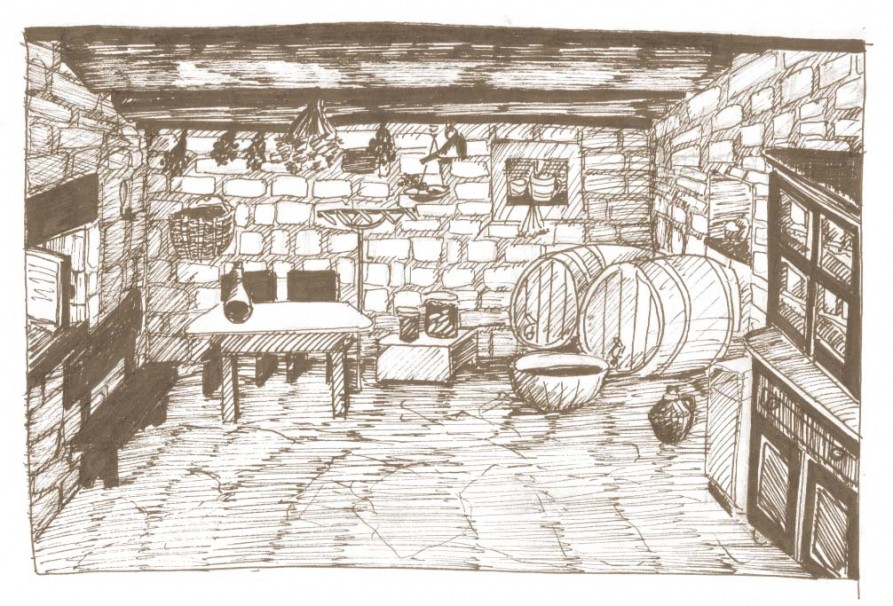Konoba or the Cellar
It is definitely not easy or simple to explain what konoba, that is the cellar, means in the life of a Dalmatian family, since the meaning of that word carries all the depth and weight of Dalmatian history and cultural heritage cherished and preserved by each Dalmatian family in their own unique way. A room located in the basement or a subterranean part of the house was an indispensable part of every estate. Wine was made and kept in the cellar, as well as other food needed to be stored in cool place. Also, different tools and equipment for work in the vineyard were kept in this room.
The cellar was always built on the northern side of the house to be as cool as possible, while the floor was often made of clay to keep all the moist necessary to keep the food fresh. In our cellar you can see objects that were an indispensable part of every Dalmatian konoba: agricultural tools such as hoe, rake and spur; oil-storage stone basin, barrels, wicker-covered flagon, potatoes, onions, garlic and so on. However, konoba is so much more than a basement or a pantry; it is a reflection of Dalmatian hard life, a mover and a shelter for every hard work day. When we think of konoba, we actually think of people’s destinies, their hard lives, work and effort, living for the soil and of the soil. The centre of every cellar is the man, the labourer, the winegrower; and the wine, as well as the cellar, is its reflection. Dalmatian songs, Dalmatian klapa, Dalmatian wine, vinegar, oil, cheese, ham, anchovies and other delicacies were all born in konoba. Get an insight into that world means to get an insight into yourself, to get to know yourself and to understand the life of our ancestors.


